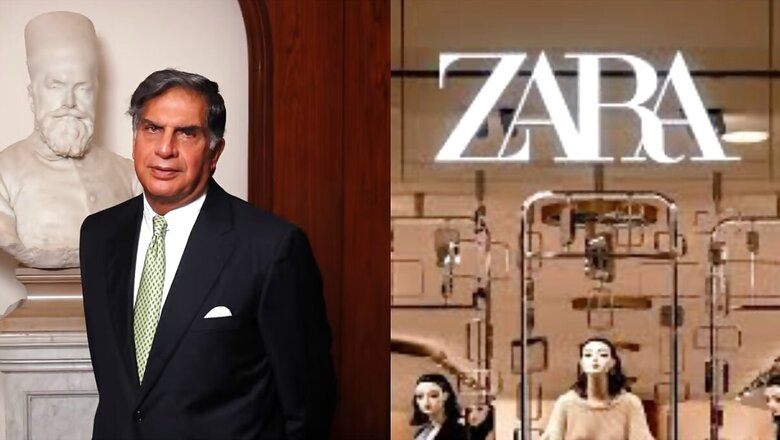
views
Ratan Tata, the visionary industrialist and entrepreneur who transformed India’s retail and fashion landscape, died on October 9 at the age of 86. While his work at Tata included heavy industry, his impact on Indian fashion, retail, and lifestyle will be remembered as one of his greatest legacies. Ratan Tata significantly influenced the country’s cultural landscape, helping spark India’s interest in global style. He foresaw the potential of India’s growing middle class and the demand for international fashion, which led to the surprising arrival of Zara, the famous Spanish fast-fashion brand, in India.
The retail landscape in India underwent a major transformation with the arrival of Zara in 2010. Zara was more than just a brand; it represented a new way of thinking about fashion—global, fast, affordable, and high-quality – making it accessible to everyday consumers. This inspired the Tata Group to promote a sustainable adaptation of what was once considered a Western phenomenon in India.
Ratan Tata would, of course, be credited as being the driving force behind Zara’s introduction to India. The Tata Group, in conjunction with Inditex, Zara’s Spanish parent company, was instrumental in the success of Zara’s introduction into the Indian market.
When Zara opened its first store in New Delhi in 2010, it ignited a retail revolution in India. The brand transformed the fast-fashion model, allowing runway trends to reach store shelves within weeks. Zara strategically placed its stores in prime locations, including high-end malls in cities like Delhi, Mumbai and Bengaluru. This success can be attributed to the Indian customer’s desire for style, speed, and value.
Ratan Tata’s vision not only made room for Zara, but also inspired an entire generation of Indian fashion shops to stay up-to-date and meet global standards.
Zara was not only a commercial change but also a symbol of culture. It offered globality and modernity to India’s metropolitan shoppers. The brand grew to represent metropolitan sophistication and worldwide fashion knowledge.
Today, Zara is one of the largest fashion retailers in India, thanks to Ratan Tata’s strategic vision of bringing this fast-fashion brand to the country. His efforts have revolutionised this generation’s sense of style and attracted global attention to fashionable apparel in the country.




















Comments
0 comment